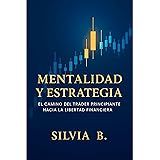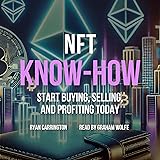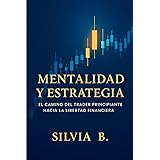Navigating the world of cryptocurrency trading often brings up a crucial requirement: Know Your Customer (KYC) verification. As discussed in the insightful video above, KYC involves providing personal identification details like a national ID, passport, driver’s license, proof of address, or bank statements to a crypto exchange. This process aims to prevent illicit activities such as money laundering and terrorist financing, aligning exchanges with traditional financial regulations.
However, many individuals face significant hurdles with KYC. Some may not have a registered address or bills under their name, while others prioritize personal privacy above all else. Concerns about data breaches, where sensitive KYC information could leak into the black market or government databases, also drive the demand for platforms offering trading without extensive identity checks. Fortunately, a selection of reliable crypto exchanges without KYC requirements still exist, though their numbers are dwindling due to increasing global regulations, particularly from entities like the European Union.
Understanding the Need for Crypto Exchanges Without KYC
The reasons individuals seek platforms that minimize or forgo identity verification are diverse and often deeply personal. Practical barriers prevent many from participating in the regulated financial system, including those who are unbanked, homeless, or living in situations where they cannot easily produce utility bills or official government IDs.
For others, privacy is paramount. They believe in the decentralized, anonymous ethos of cryptocurrency and prefer to keep their financial activities separate from their personal identity. The risk of personal data being compromised, as has occurred in various incidents across industries, makes them wary of centralized exchanges demanding extensive personal information.
Beyond privacy and practicalities, some traders wish to avoid potential government surveillance or restrictions on their financial freedoms. Finding legitimate crypto exchanges without KYC allows these users to maintain a higher degree of anonymity while still engaging in the digital asset market.
The Evolving Landscape of No-KYC Crypto Trading
The regulatory environment for cryptocurrency exchanges has tightened considerably in recent years. Governments worldwide are increasingly pushing for stricter KYC and Anti-Money Laundering (AML) compliance, aiming to bring crypto into the fold of regulated finance. This shift has led many previously no-KYC platforms, such as Stex and Crex24 mentioned in the video, to implement mandatory identity verification.
This trend has significantly reduced the number of options available for traders seeking to operate without extensive personal disclosures. While decentralized exchanges (DEXs) inherently offer a no-KYC experience by nature of their design, they might not always provide the liquidity, trading pairs, or advanced features that centralized exchanges offer. However, a diligent search still reveals reputable platforms that cater to this specific demand, often with certain trade-offs like daily withdrawal limits or a narrower focus on specific coins.
Top Platforms for Trading Crypto Without Extensive Identity Verification
While the list of options may be smaller than before, several robust and user-friendly crypto exchanges continue to offer trading with minimal or no KYC. Each platform comes with its unique strengths, fee structures, and focus, catering to different trading styles and preferences. It’s crucial to understand their individual policies and any limitations that might apply.
KuCoin: A Giant Among No-KYC Options
KuCoin stands out as one of the largest global cryptocurrency exchanges that historically allowed users to trade and withdraw up to a certain daily limit without KYC. This Chinese-origin exchange offers a wide range of services including spot trading, margin trading, futures contracts (through KuMEX), and staking pools for various coins like Tezos, KCS, TRX, EOS, and ATOM. Its high liquidity ensures that trades are executed smoothly, a significant advantage for active traders.
While trading fees are relatively low, withdrawal fees can sometimes be higher compared to smaller platforms. For users prioritizing a broad selection of assets and robust trading infrastructure without immediate identity verification, KuCoin remains a highly recommended choice, though verification might be required for higher withdrawal limits or specific features.
BitMax (now AscendEX): Futures and Dividends
Another strong contender with Chinese roots, BitMax (now rebranded as AscendEX), offers a comprehensive trading experience. It allows users to trade without mandatory KYC, typically imposing a daily trading limit around $1,000 for unverified accounts. This platform is particularly notable for its futures trading options, which are scarce among no-KYC exchanges, and its native BTMX token that offers dividend payouts from exchange trading fees.
AscendEX combines advanced trading features with a degree of anonymity for those who stay within the unverified limits. Its offering of both spot and futures markets makes it a versatile choice for traders looking to diversify their strategies.
Mercatox: Unearthing Low-Cap Gems
Mercatox caters to a different segment of the crypto market, focusing on lower market capitalization coins and community-oriented projects. While it may not boast the same massive volumes as larger exchanges, it serves as an excellent platform for discovering under-the-radar assets. Popular among European and Russian audiences, Mercatox offers a straightforward registration process without requiring extensive KYC.
The platform provides decent liquidity for certain niche coins, making it a valuable resource for altcoin enthusiasts. Its simple interface and focus on emerging assets make it an accessible option for those looking beyond mainstream cryptocurrencies.
BitMEX: The Pure Futures Powerhouse
For traders exclusively interested in futures contracts, BitMEX is a well-known name that famously operates without KYC requirements. Though it’s banned in the United States, users often employ VPNs to access the platform, albeit with a degree of risk. BitMEX is one of the largest futures exchanges globally, offering high leverage and deep liquidity for derivatives trading.
Notably, BitMEX doesn’t even mandate two-factor authentication (2FA), though it is highly recommended for security. Registered in offshore locations like the Cayman Islands or Seychelles, it embodies a more laissez-faire approach to regulation, appealing to experienced traders prioritizing anonymity in futures markets.
Bitrue: XRP-Focused Trading with Phone Verification
Bitrue is a relatively newer Chinese exchange that has gained traction, particularly among XRP enthusiasts due to its strong focus on the asset. While it generally operates without full KYC, it does require phone verification for some services. This can be circumvented using a “burner phone” or a prepaid number, offering a practical workaround for those who prefer not to link their primary phone number.
The platform features a clean layout and offers standard spot trading. While the speaker in the video expressed a personal dislike for its XRP focus, Bitrue remains a viable option for those comfortable with phone-based verification, offering a good user experience for fundamental crypto trading.
BitForex: Spot and Perpetual Contracts with Limits
BitForex is another Chinese exchange offering both spot and perpetual futures trading. It allows users to operate without full identity authentication up to certain limits, typically a daily withdrawal cap of $1,000. This makes it a suitable choice for users who trade and withdraw smaller amounts of cryptocurrency regularly.
Though relatively new, BitForex has established itself as a functional exchange for those seeking to engage in derivatives trading and spot markets without immediate KYC. Its operational model balances accessibility with fundamental trading features, providing a solid platform for moderate activity.
ProBit: IEOs and Optional Phone Binding
ProBit, a Korean-based exchange, offers a user-friendly interface and is notable for its numerous Initial Exchange Offerings (IEOs). While it doesn’t mandate KYC for basic trading, it offers optional phone binding. Activating this feature can provide users with benefits such as eligibility for airdrops and other promotional incentives, enhancing their trading experience.
ProBit is a good choice for traders interested in participating in new token launches and those who appreciate a platform that offers optional enhancements without forcing full identity disclosure. Its focus on IEOs makes it a unique offering among no-KYC exchanges.
LiveCoin.net: Russian Origin with Rare Coin Listings
LiveCoin.net, a Russian exchange, is distinctive for its apparent complete lack of KYC requirements, allowing users to trade and withdraw with significant freedom. It features a wide array of rare and low-cap coins that might not be available on larger platforms, appealing to explorers of the altcoin market. The platform also incentivizes higher trading volumes by offering lower fees to more active traders.
Despite some potentially “sketchy listings” as mentioned in the video, LiveCoin.net offers a robust option for European traders seeking a Chinese alternative with deep anonymity and a diverse selection of less common digital assets. Its focus on user privacy and unique coin offerings makes it stand out.
Altilly: European Accessibility with Liquidity Challenges
Altilly is a European-based exchange, possibly Russian or Estonian, that provides a fluid and easy-to-use trading experience. While its user interface is commendable, it often struggles with lower liquidity, especially given its extensive number of trading pairs. This means that executing large orders might be more challenging due to thin order books.
However, Altilly maintains a no-KYC policy for basic trading, allowing users to operate up to certain thresholds without full verification. Typically, limits around $2,000 might apply before additional identity checks become necessary, often tied to 2FA or cellular phone verification. It serves as a good option for discovering and trading smaller cap coins, provided one is aware of the liquidity constraints.
TradeOgre: The Ultimate Privacy Coin Hub
TradeOgre stands as a testament to the privacy-first ethos of cryptocurrency. This platform requires absolutely no KYC and is primarily focused on privacy coins and assets related to privacy technology. It boasts a very low fee structure and a simple, intuitive layout for its trading pairs. Interestingly, it maintains a minimal online presence, lacking even a Twitter account, which further underscores its commitment to discretion.
While TradeOgre may not have the highest liquidity, it is the go-to exchange for individuals deeply invested in privacy coins and digital anonymity. Its dedication to this niche and its complete absence of KYC make it a unique and valuable resource for a specific segment of the crypto community.
The quest for reliable crypto exchanges without KYC remains a priority for many in the digital asset space. Whether driven by concerns over privacy, regulatory restrictions, or simply the desire for unhindered access, these platforms provide crucial alternatives. As the cryptocurrency landscape continues to evolve, understanding these options and their specific features empowers traders to make informed decisions that align with their personal values and trading strategies.







